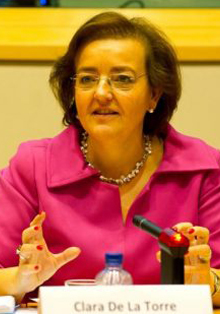The Diplomat
The consequences that Morocco warned Spain about, after our country took in the leader of the Polisario Front, Brahim Ghali, in a hospital in Logroño, without notifying Rabat, began to be seen yesterday. In the last few hours, some 5,000 immigrants arrived irregularly in Ceuta from Moroccan territory, in the face of the passivity of the security forces of the Maghreb country.
As has happened on other occasions, Morocco has used the relaxation in the control of migratory flows to show its displeasure at some of its actions to Spain. In this case, the anger, which led to the summoning of the ambassador in Rabat, Ricardo Díez-Hochtleiner, and a couple of communiqués, was what they consider to be an unfriendly gesture by the Spanish government for having allowed Ghali to be hospitalised in our country on 21 April, where he is said to have arrived with an Algerian diplomatic passport and a false identity.
The Moroccan displeasure is not so much with the hospitalisation -apparently by COVID- for which the Spanish authorities allege “humanitarian reasons”, but with the way in which it was carried out, without previously notifying the Moroccan government, and they consider that, after negotiations with Algeria. Ghali, 72, is charged in the Audiencia Nacional, crimes committed against Saharawi dissidents and militants, mostly born in the Spanish colony, who had different political views to those of the Polisario ruling class.
Since the early hours of Monday morning, some 5,000 immigrants entered Ceuta in an irregular manner, after skirting the maritime border breakwaters of El Tarajal and Benzú, many of them swimming or with floats, without the Moroccan security forces, who normally prevent access through that area, doing anything to stop them.
Among the immigrants, there are some 1,500 minors, as well as several entire families with children. According to El Faro de Ceuta, one person reportedly died in the attempt to reach the autonomous city by sea.
A large number of the migrants have been taken to the Tarajal warehouses, which were set up during the worst months of the pandemic for migrants arriving in Ceuta to keep them in quarantine to prevent any contagion of the coronavirus. Another 300 may have already been returned to Morocco.
The Spanish government has decided to mobilise the army, specifically La Legión and Regulares units, to reinforce the security forces in controlling the city.
The Minister of Foreign Affairs, Arancha González Laya, asked yesterday morning about what was happening, assured that the government has no evidence that Morocco is raising its hand to allow migrants to leave for Spain as a way of putting pressure on the government.
In statements to the SER radio station, González Laya said that he could not speak for Morocco, but added, “In any case, I can tell you that they assured us a few hours ago that this is not the result of a disagreement”.
A few days ago, González Laya was visibly annoyed by repeated questions from journalists about the diplomatic crisis with Morocco, and limited herself to saying that whatever the government had to say to Rabat, it would do so directly and not through the media.
The president of the PP, Pablo Casado, posted on his Twitter account, calling on the government to “immediately” guarantee the integrity of our borders and to coordinate with Morocco “the return of immigrants to their country.







